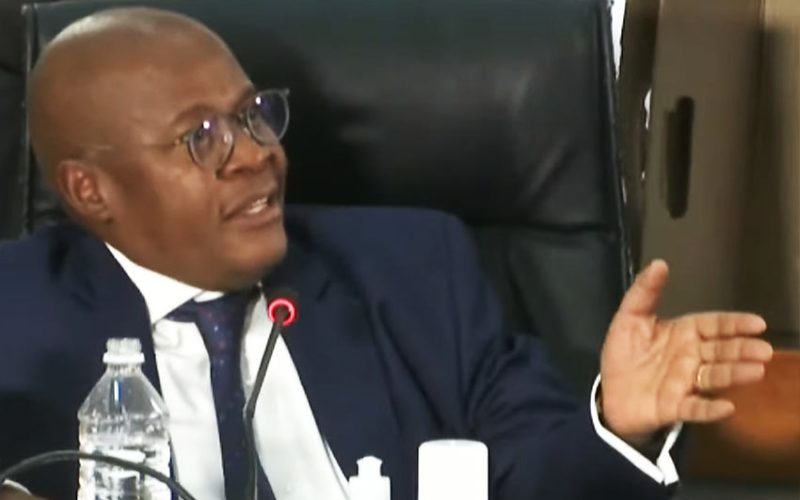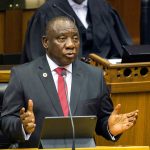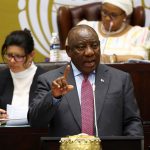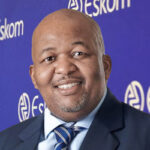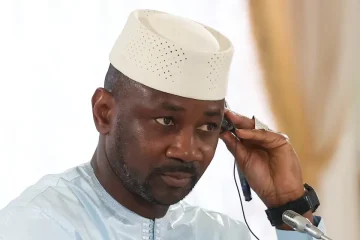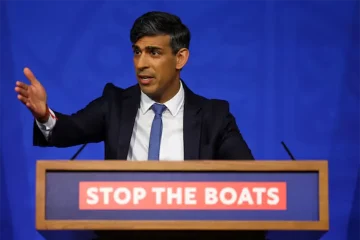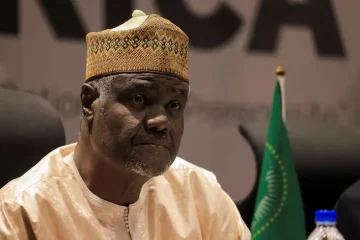AFRICA MIRROR REPORTER
BRIAN Molefe, a former CEO of South African power utility Eskom has launched an unprecedented attack on the country’s President Cyril Ramaphosa, accusing him of being used as a pawn by a coal mining company.
Molefe, in his testimony before the Zondo Commission into State Capture, also laid into Public Enterprises Minister Pravin Gordhan, describing him “smooth-talking and dictatorial”.
On Ramaphosa, he said the president, a former secretary-general of the ANC and the National Union of Mineworkers, was used by coal mining company Glencore to milk billions out of Eskom.
Molefe said Glencore, which bought Optimum coal mine, did so without conducting due diligence and failed to acquaint themselves with how coal supply agreements worked.
‘Instead of conducting due diligence and understanding how the coal supply agreement worked, they sold 9.64% of the shares in the newly acquired company to Mr Cyril Ramaphosa, a political heavyweight, and made him chairman of the newly-acquired company. That was a strategic decision to use the former Secretary General of the African National Congress, former Secretary General of the National Union of Mineworkers and a member of the ANC’s National Executive Committee at the time. They knew that the profitability of the company could only come from a successful renegotiation of the coal price and ignoring by Eskom of the penalties that were accumulating at the time. Mr Ramaphosa was their bet.
“The profitability of Optimum was therefore dependent on the peddling of (political) influence and the extent to which Glencore would be able to exert pressure on the Eskom directors and management, and not on the fundamentals of the company that they had acquired. This, in my opinion, was the source of Glencore’s problems. They had made their bed, and needed to lie on it. It was unfair and arrogant of them to demand, as they were doing, that Eskom should (effectively) pay for the irresponsible manner in which they had tied themselves into the proverbial knot,” Molefe said.
He said when he arrived at Eskom, a ‘de facto board” of the company had been established outside of the company in the form of a war room in the Presidency. Eskom management had to report to the war room, which was chaired by Ramaphosa, who was then deputy president. This, Molefe argued, effectively made Ramaphosa the de facto chairperson of Eskom and put him in a powerful position to pursue Glencor’s agenda at Eskom.
Molefe continued: “I quickly came to realise that the war room was not about load shedding and turning Eskom around. Something else was happening. Eskom senior managers were being distracted from fighting load shedding by being made to attend endless meetings at which they were supposed to give unending and meaningless reports. I was uncomfortable with the war room and stopped attending its meetings. If the war room had done its work diligently, it would have solved the load-shedding crisis before I arrived at Eskom.
‘I was relieved when president Zuma closed it down in favour of giving management a fair chance at fighting load shedding and turning the company around. Under my leadership, the leadership of Mr Koko, all the engineers at Eskom and the guardians, (Eskom staff), we defeated load shedding in August 2015 and never had load shedding again for three years after I had left Eskom. Load shedding came back to Eskom after Mr Ramaphosa, following the R1bn Nasrec conference, was appointed President of the country, and he in turn appointed the smooth talking and dictatorial Pravin Gordhan as his Minister of Public Enterprises. The less I say about Pravin Gordhan the better. As you see Chairperson, despite his smooth talking, Public Enterprises are failing and it appears that they are on course to be sold to private interests. I suspect that like the javelin, they will be thrown over the fence to be caught at a later stage.”
Molefe told Deputy Chief Justice Raymond Zondo that he found the behaviour of Ramaphosa revolting.
“Ramaphosa must have known about what Glencore sought to achieve. He was the chairperson of the company that was bought without a due diligence. He was chairperson, when the penalties were imposed. He was still chairperson of Optimum when the unlawful agreement that sought to increase the price of coal from R150 and set aside the penalties was negotiated with certain members of Eskom staff in 2014. He knew that he was being used for his political standing and hoped to influence matters to Glencore’s favour. He is not naïve and he has been dealing with these corporates which gave him his riches.
“Glencore is a multi-billion rand company. Their BEE partner, Mr Ramaphosa, subsequently rose to become the Deputy President, and then President of the country. It is rumoured that his campaign to become President of the ANC was financed to the tune of R1bn. This was unprecedented in the African National Congress. I daresay that it was not in line with the culture, values and ethos of the ANC that I had come to know and which I continue to be a member of,” he said.

